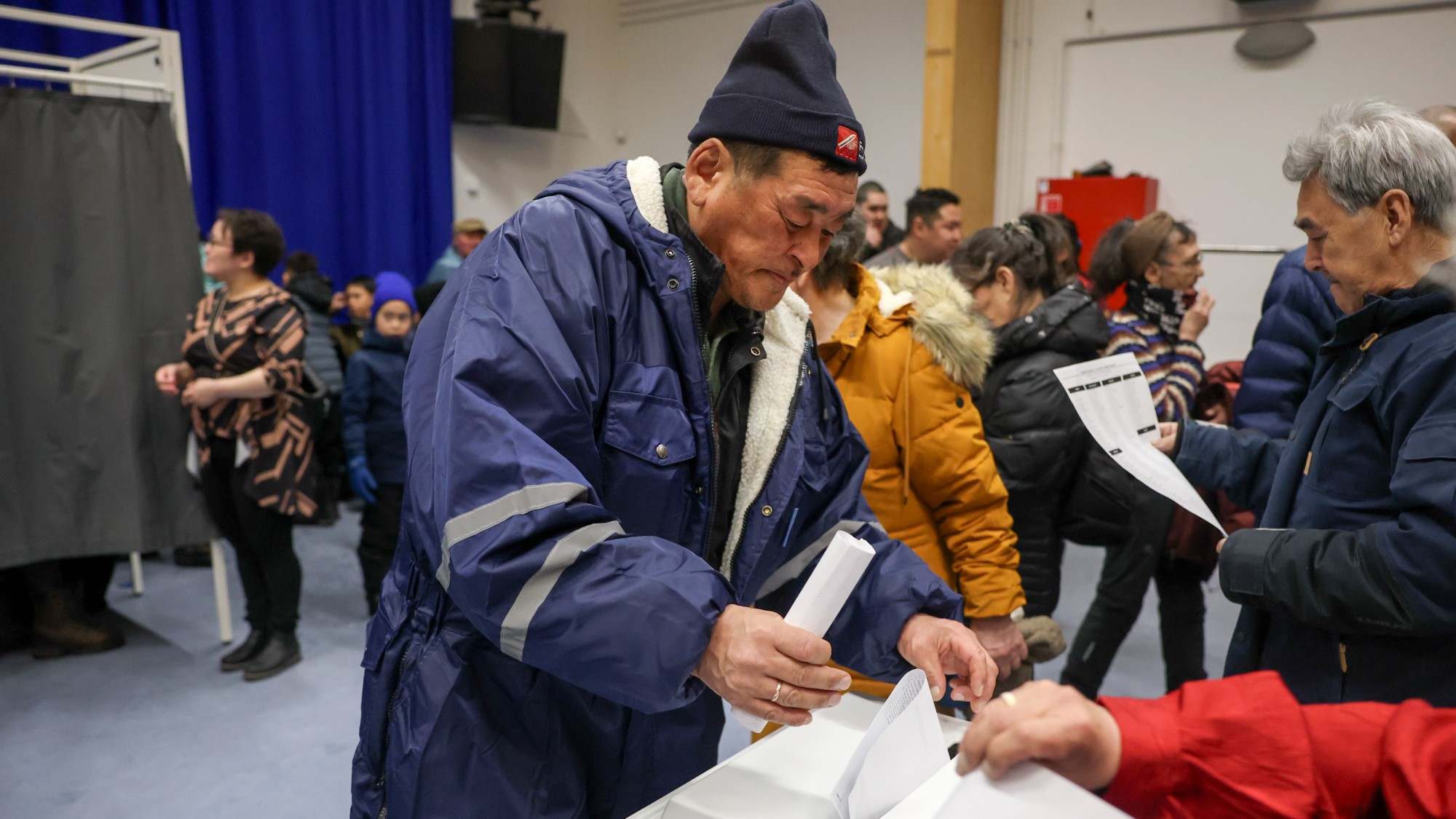Greenland's surprising election result
Unexpected success for Demokraatit party after a campaign overshadowed by Trump's threats

A free daily email with the biggest news stories of the day – and the best features from TheWeek.com
You are now subscribed
Your newsletter sign-up was successful
Greenland's centre-right opposition has won the most votes in an election overshadowed by Donald Trump's threat to take control of the island.
With more than 90% of yesterday's ballots counted, the Demokraatit party was set for a "surprise" victory, said The Guardian, and the consequences will spread far beyond the island's shores.
The results suggest many Greenlanders "favour a slow and steady decoupling from Denmark", said The Times and do not share Trump’s "outspoken desire for the world’s biggest island to immediately break from its current proprietor and become part of the United States".
The Week
Escape your echo chamber. Get the facts behind the news, plus analysis from multiple perspectives.

Sign up for The Week's Free Newsletters
From our morning news briefing to a weekly Good News Newsletter, get the best of The Week delivered directly to your inbox.
From our morning news briefing to a weekly Good News Newsletter, get the best of The Week delivered directly to your inbox.
What happened?
At the last count the Demokraatit party was drawing nearly 30% of the vote, ahead of Naleraq, another opposition party, which was polling second with about 25%. Prime Minister Mute B. Egede's Inuit Ataqatigiit party was third with over 21%.
The Demokraatit leader, Jens Frederik Nielsen, admitted he was surprised by his party's success. "We didn't expect the election to have this outcome; we're very happy," said the 33-year-old former badminton champion.
About 44,000 Greenlanders out of a population of 57,000 were eligible to vote to elect 31 MPs, with six parties on the ballot.
Why is it so important?
Since Trump returned to power, he has reiterated his ambition to acquire the territory, telling Congress earlier this week that the US needs Greenland for "national security" and "one way or the other we're gonna get it".
A free daily email with the biggest news stories of the day – and the best features from TheWeek.com
But Greenland and Denmark's leaders have "repeatedly rebuffed his demands", said the BBC.
The island "straddles strategic air and sea routes in the North Atlantic" and has "rich deposits" of the rare earth minerals used to make "everything from mobile phones to renewable energy technology", said The Associated Press.
Greenland has "managed to stay out of the limelight" until recently, said Sky News, but it's "now being interfered with" by the world's "most powerful man". The "vast island" is "caught up in a geopolitical race for dominance in the Arctic", said Reuters, where melting ice caps are "making its resources more accessible" as well as "opening new shipping routes".
What happens now?
None of the parties is expected to win a majority of the 31 seats in parliament, so negotiations to form a coalition are expected over the coming days. Nielsen said his party is "open to talks with all parties" that are "seeking unity".
The question of independence dominated the election campaign. Greenland, the world's biggest island, has been controlled by Denmark, nearly 1,860 miles away, for about 300 years. It governs its own domestic affairs, but decisions on foreign and defence policy are made in Copenhagen.
Naleraq promised to hold a snap vote on independence within three to four years but other parties, including Demokraatit, have offered a more cautious approach, with no official timeline for independence.
Chas Newkey-Burden has been part of The Week Digital team for more than a decade and a journalist for 25 years, starting out on the irreverent football weekly 90 Minutes, before moving to lifestyle magazines Loaded and Attitude. He was a columnist for The Big Issue and landed a world exclusive with David Beckham that became the weekly magazine’s bestselling issue. He now writes regularly for The Guardian, The Telegraph, The Independent, Metro, FourFourTwo and the i new site. He is also the author of a number of non-fiction books.